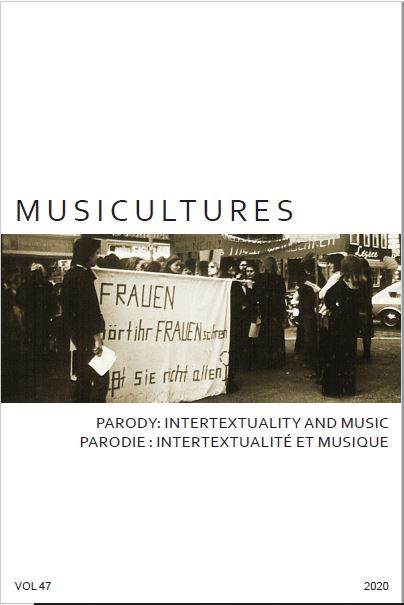Abstract
Musical parody was integral to early American political culture. Focusing on political songs designated “parodies” in early American newspapers, this article demonstrates how parodists representing competing political parties balanced mimesis and critique to mock political adversaries, refute opponents’ arguments, and expose political “truths.” These parodists used mimesis, structural manipulation, reductive dichotomies, exaggerated claims, and extreme levels of intertextuality in groups of related parodies. As erudite satire declined in appeal, parodists carried elements of early American humour into more accessible genres. While individual parodies may seem ephemeral, a holistic examination demonstrates the genre’s integrality and adaptation within early American political culture.
- The author retains copyright over the work.
- The author grants the journal owner (The Canadian Society for Traditional Music / La Société canadienne pour les traditions musicales) an exclusive license to publish the work.
- The author may post a pre-print or post-print version of the work (see definitions below) on a personal website for up to twelve months after the work is published in MUSICultures. After twelve months, the pre-print version must be replaced with the published version.
- The author may deposit the published PDF of the work in a non-commercial online repository twelve months after the work is published in MUSICultures, or any time thereafter.
- Any such deposit must include a link to the work on the MUSICultures website, e.g., https://journals.lib.unb.ca/index.php/MC/article/view/19996
A pre-print is a work-in-progress—a contribution not yet accepted, or perhaps even submitted, to MUSICultures.
A post-print is the version of a contribution after peer review and acceptance by MUSICultures, with revisions completed.
The published version is the PDF file of a contribution as it appears in MUSICultures.
Please note that academia.edu and ResearchGate.com are both for-profit repositories; authors may not deposit the published PDF of the work in these repositories until after the journal’s embargo period.
For permission to reprint or translate material from MUSICultures, please contact Heather Sparling, General Editor of MUSICultures (heather_sparling@cbu.ca).

